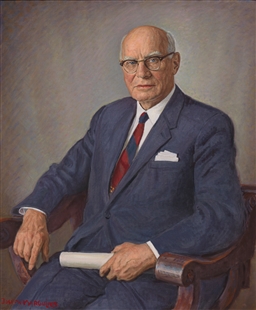A Quote by Evan Davis
When a population saves a lot, the funds are invested outside the country as well as inside. If the Japanese invest in the United States, it pushes their exchange rate down and makes their manufacturing more competitive.
Related Quotes
If a country is an attractive place for foreigners to invest their funds, then that country will have a relatively high exchange rate. If it's an unattractive place, it will have a relatively low exchange rate. Those are the fundamentals that determine the exchange rate in a floating exchange rate system.
Canada, the United States and Mexico, we developed these energy reserves that we have in this North American region. And you can see a not only driving down the cost of electricity but a major manufacturing boom in this country. Couple that with tax policy, reduction, reducing the corporate tax rate, and that I think a renaissance in manufacturing like we've never seen in this country and really drive the economy.
The rate of growth of the relevant population is much greater than the rate of growth in funds, though funds have gone up very nicely. But we have been producing students at a rapid rate; they're competing for funds and therefore they're more frustrated. I think there's a certain sense of weariness in the intellectual realm, it's not in any way peculiar to economics, it's a general proposition.
Never mind that from the 1600s until the late twentieth century the population the United States was 85% white, 12% black, and there have been changes demographically in the United States since the days of its founding. So they're trying to tell you that the United States' greatness happened because of diversity. Well, go back and look at the days the country was founded, and they do. When they do that, they see how racist and bigoted this country was. they see the seeds for bigotry and racism and discrimination were sown at the founding, is how it's now taught.
The American Dream has really good PR. It's kind of difficult to live in the United States and not on some level be pulled into the allure of the American Dream. It's in the DNA of the country. So, for a population coming out of slavery, desperate to become part of the full life of the United States, it only makes sense that they would embrace this route to the American Dream.
Look at Germany where 20 percent of the labor force is in manufacturing compared to about 8 percent in the United States. Germany pays a lot more conscious attention at the level of the federal government to attracting and keeping manufacturers in Germany. So this is something that other countries do that the United States has not historically done.
Why is Caterpillar bad if we create a new job in India or China to receive U.S. exports? It makes no sense to me. We want to drive all the exports we can from the United States. We want to concentrate on all those consumers, outside contractors, customers outside the United States that we possibly can.
The bigger the population gets, the more serious the problems become... We have to address the population issue. The United Nations, with the U.S. supporting it, took the position in Cairo in 1994 that every country was responsible for stabilizing its own population. It can be done. But in this country, it's phony to say 'I'm for the environment but not for limiting immigration.'




































